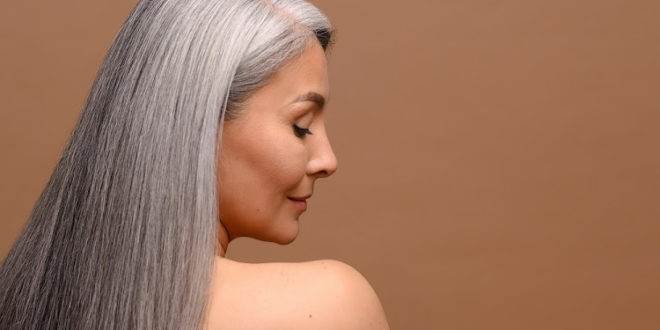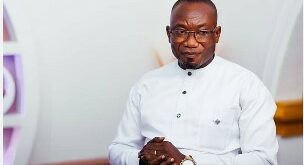About 10 years ago, I decided to let my hair go grey.
The reason was very simple: I couldn’t be bothered spending all those hours at the hairdresser every three months or so. I had two young children, and even with help at home — I was living in Hong Kong — that time felt wasted. And ultimately, who really cared? I didn’t, my husband didn’t. It’s saved money and time, and I’ve never looked back.
So, it was with frustration and some incredulity that I read about Lisa LaFlamme, the Canadian news anchor who let her hair go grey during the pandemic and then was let go (the owners of CTV denied “age, gender and grey hair” were factors in terminating her contract). Here was an accomplished TV journalist, who had reported from war zones (going through the hassle of colouring her hair in the women’s toilets at Kandahar airfield and in a Baghdad bunker, according to the New York Times), seemingly dismissed over her appearance.
Age discrimination is one of the last frontiers of diversity and inclusion. It largely remains a taboo subject in workplaces. Stories like LaFlamme’s expose the entrenched prejudices women face as they hit middle age and show how much work there is to be done.
Those recoiling from a female who allows herself to look her age are feeding the expectation that as women get older, they must strive to keep looking younger
The enduring fixation with how we age (and even that we age) detracts from what half the population can bring to the table, and undermines women’s achievements, contributions and expertise. Nobody would judge a middle-aged man with grey hair (search for a photograph of Lloyd Robertson, who LaFlamme, 58, replaced when he retired at 77).
Those recoiling from a female who allows herself to look her age are feeding the expectation that as women get older, they must strive to keep looking younger. It once again places the onus on women to change to fit society’s ideal of what is acceptable. And it is exhausting. We already had to prove ourselves in our 20s, but come our 40s and 50s it feels like, once again, women need to show why they are worthy.
Lookism is more pointedly directed at females, and especially women in the latter part of their careers. While it spans professions, it does seem more pervasive and overt in television. Broadcaster Libby Purves succinctly spoke about the pressure on women at the BBC to appear attractive and youthful while men were allowed to age gracefully.
Television news is increasingly looking like an outlier. From central banking (Christine Lagarde, Janet Yellen) to fashion, even, women with silver tresses are holding positions of influence (Sarah Harris, the deputy editor and fashion features director at British Vogue found her first grey strand around 16 and never dyed her hair).
The mature model movement is thriving. Carolyn Doelling, a former American telecommunications and banking executive, became a model in her 70s and is an Instagram sensation. Not to be outdone by her famous son, Maye Musk, yes, the mother of Elon, became a brand ambassador for CoverGirl at 69. This list grows longer.
The latest awards season has also seen a celebration of female actors in their 50s and 60s: Michelle Yeoh, Cate Blanchett, Jamie Lee Curtis.
Beauty is in the eye of this beholder
These are small but important wins in the fight against ageism. As women live and work longer — followed through their careers by a significant wage gap and watching their retirement savings trail men’s — we must stop penalising them for something out of their control. Try instead acknowledging their accomplishments and remunerating them accordingly. While companies with a higher proportion of women in management in Asia Pacific contribute to better stock performances than those with a lower representation, females continue to earn 83c to every dollar males earn, on average, according to a Bank of America March 6 report titled “More Alpha, Less Pay”. (Alpha refers to the excess return of an investment relative to a benchmark.)
There is some progress. Increasing discussion around menopause is a step towards demystifying what it means to be a woman in midlife. But it does run the danger of defining women in the second half of their careers, and can feel like a grand gesture, overcompensating for years of silence.
Women want to be included and accepted regardless of their stage in life or career. I shouldn’t even have to state the obvious here. That is the visibility they are asking for when they talk about becoming invisible in middle age. Not drawing attention to signs of ageing. Not feeling like there is an expiry date. For that, attitudes must change and we must approach ageism (which affects men as well as women) like any other diversity and inclusion topics such as gender, culture, race and disability.
This International Women’s Day, let’s call out the double standards: A grey-haired man is considered distinguished. A grey-haired woman gets harangued. We all age. Get over it.
Papuc is a Bloomberg Opinion editor.
More stories like this are available on bloomberg.com/opinion
 Home Of Ghana News Ghana News, Entertainment And More
Home Of Ghana News Ghana News, Entertainment And More





